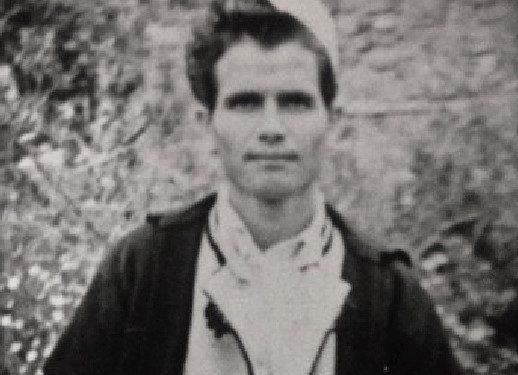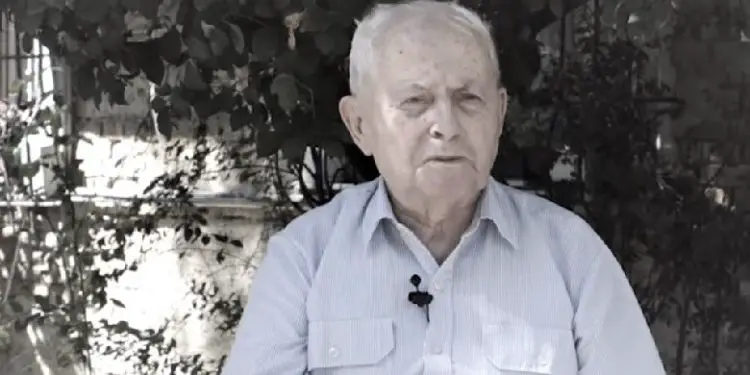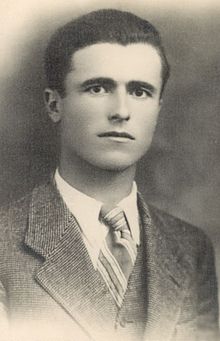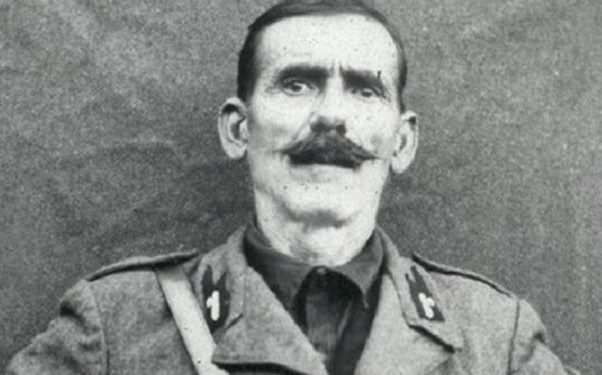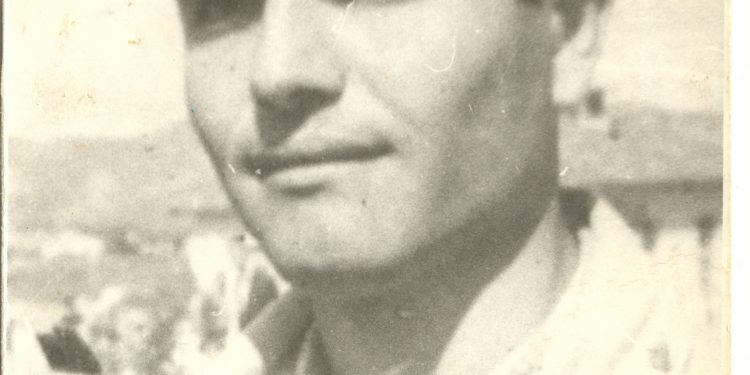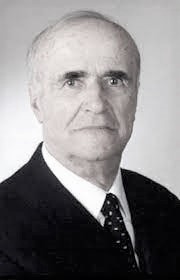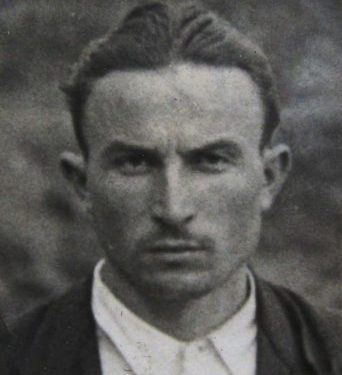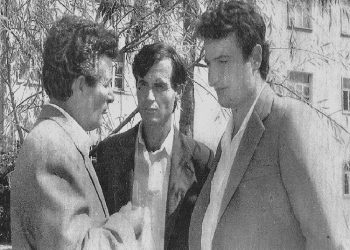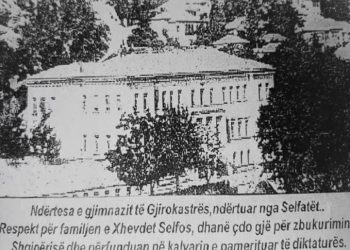From Agim Musta
Part nineteen
Memorie.al / On the fourth anniversary of the passing away of the well-known historian, researcher, writer and publicist Agim Musta, (July 24, 2019), former political prisoner, his daughters Elizabeta and Suela, gave him the right to exclusivity for the publication, by the online media Memorie.al, of one of the author’s most prominent publications, such as the ‘Black Book of Albanian Communism’. This work contains numerous data, evidence, facts, statistics and arguments unknown to the general public, on communist crimes and terror in Albania, especially against intellectuals, in the period 1945-1991. The publication for the first time of parts of this book is also the realization of one of the bequests of the historian Agim Musta, who, from the beginning of 1991 until he passed away, for nearly three decades was engaged with all his powers, working to raise collective memory, through book publications and publications in the daily press. All that voluminous work of Mr. Agim Musta, concretized in several books, is a contribution of great value to the disclosure of the crimes of the communist regime of Enver Hoxha and his successor, Ramiz Alia. A good part of the publications of Mr. Agim Musta, is also translated into English. Thanking the two daughters of the late Musta, who chose Memorie.al, to commemorate their father, from today we are starting the publication, part by part, of the “Black Book of Albanian Communism”.
Continues from last issue
-Portraits of fellow sufferers-
(1945-1991)
It does not depend on the poet, you fool!
- In memory of Avzi Nela
They hanged the poet! The sage Avzi Nela was hanged in the middle of Kukës. They left him hanging for three days and three nights, to terrify the people. The children trembled when they saw their poet teacher, swinging on the rope in the wind of the mountains. They did not stay with the poet, who was locked up for 15 years in the deep galleries of Spaç. They were not satisfied, that they bleached their hair and shaved their cheeks already at the age of 30. The marks of torture on his face and the handcuffs on his hands were little noticeable. He and dead had to turn into a symbol of horror. That’s why they didn’t shoot him on a river bank at night, in the dark, like they did with the others.
The poet had to hang in the sunlight, in the middle of the city at the crossroads. Everyone had to see him, children and youth, men and elders, Gjallica and Drini, the sun and the moon. That was what the dictator had ordered. What did you do to us, you crazy! It does not depend on the poet, you fool!
- Execution of Tartarin
“Tartarin” was a dog, but he was a prisoner. It is not known who had brought him to Spači prison camp. Someone said of a driver who loaded copper ore. Someone else said that the dog had come from a village nearby, quite small. No one really knew how that dog got into the prison camp, so well-guarded by dozens of bodyguards and surrounded by double barbed wire. Except one thing was known for sure: the name “Tartarin” was given to him by a sailor prisoner, an Albanian “Jack London”, named Fiqiri Muho.
“Tartarini” was not separated from Fiqiri, in the gallery, in the inclined plane, in the canteen, wherever he went. “The Tartar” was beloved, not only with Figo, but with all the prisoners. He licked their hands and their ragged clothes. Never had any prisoner eaten his ration of bread, dish, or anything else, without the convict himself giving it to him. As loving as he was to the prisoners, “Tartarini” was as fierce as he was to the guards and captains of the camp. As soon as he saw one, he became furious and gnashed his teeth. As soon as the policemen saw “Tartarini”, they kicked him and shot him with everything they could get their hands on.
Several times they had tried to take him out of the camp, but “Tartarin” became a smell and hid under the prisoners’ beds. Those who hated “Tartarin” more were the dogs – wolves of the command. When he saw one of these, he would bark furiously. For all these actions, “Tartarini” was the beloved of all the convicts. A lick from him, took away some of their worries. They caressed him, kissed him, and hugged him, like a little brother.
In the days of the revolt, when the prisoners of Spaç stood up for their human rights, “Tartarini” was with them. He stood in the front rows, where anti-communist slogans were thrown and patriotic songs were sung. He smelled that something extraordinary was happening in the camp. He moved very restlessly from one shed to another. He looked the prisoners in the eyes, as if he wanted to know what was going on. When the camp was attacked by hundreds of police and Special Forces, “Tartarini” was at the forefront of the fight. He bit with his sharp teeth, policemen and Special Forces.
After the revolt was put down, five people were sentenced to death. Four were prisoners; the fifth was “Tartarini”. They executed him not with a bullet, but in a cruel way. They tied him with two chains to a post, so that he wouldn’t move. Four policemen, under the supervision of two officers, hit him continuously with the tails of shovels. The “Tartarini” tasted until the flesh trembled. They kept hitting him until he broke his bones and skull.
This is how the execution of “Tartarin” was decided. In the darkness of the night, one of the prisoners took the corpse of “Tartarin” and buried it at one end of the camp.
- 150 years in prison, for a toast
Albanians, especially those from the South, drank brandy with a toast on occasions of joy. During the communist dictatorship, the first toast was raised for “comrade” Enver and for the Party. When such toasts were being made, no one cared not to return the brandy glass. It had happened that someone, whose stomach was boiling from the inside, put the glass to his lips and did not return it.
If it were dictated by the “vigilant eye”, there would be evidence that the pear had its tail backwards. He was called by the secretary of the Party, the director of the company, sometimes even the Interior Department. He was held accountable, why he had not returned the toast, his biography was dug up, and there were even cases when he was fired.
Few people believe that 12 people were sentenced for one toast, with 150 years of imprisonment, even today, when many absurdities of the dictatorship have come to light. The event happened at the end of 1971, in a village of Skrapar. A boy from the Kaplan tribe was getting married and friends and relatives were invited to participate in this joy.
Most of them were branded by the “people’s power” as kulaks and class enemies. In the middle of the night, when the guests had gathered, it occurred to someone to raise a toast to the son of that country, Abaz Ermenjin. They returned the glasses with the bottom, because that’s what Dollibashi wanted. However, nothing escaped his “watchful eye”. The next day, the incident was reported to the Interior Branch. The Chief of Security announced how to act.
The immediate arrest of the “criminals” was ordered and a group of investigators from the Ministry of Internal Affairs was sent to Çorovoda. On the other hand, the Central Committee of the Labor Party issued a severe warning to the Skrapar Party Committee for weakening the class struggle. To raise a toast in Skrapar, for Abaz Ermenj, after a quarter of a century of liberation?!
This was the highlight! The investigators tried to discover a conspiracy related to the symbol of the toast, but they could not succeed, despite all the torture they used. Most of the arrested did not even remember raising a toast to Abaz Ermenji, whom they had never seen or heard his voice. They, after all, admitted that they could have raised the toast, but not from desire, but from the vapors of brandy, which had corked them.
After six months of intensive investigation, the investigative process was closed by concluding that they were dealing with a hostile group, which should have been punished in the cinema of Çorovoda, turned into a tragicomic spectacle. In the indictment read by the prosecutor, the toast was omitted and the wedding was presented as a pretext for the gathering of the enemies of the Party. The defendants, dressed as Byzantine icons, mention the wedding and the toast. When they were asked by the president of the court, about the conspiracy and the connections with Abaz Ermenji, they shrugged their shoulders and teared their eyes. What did the poor say?!
The court’s decision was read when there was nowhere to throw apples in the hall. Twelve “enemies” of the people were sentenced together to 150 years in prison! Twelve men were separated from their families and sent to the prisons and galleys of Spaçi. It is hard to believe that in Albania there was a time when raising a toast was paid with 150 years in prison!
- The massacre of August 18, 1949, in Mirdita
Mirdita, with a rugged mountainous terrain, no roads, full of forests, streams and rocks, became the most prominent anti-communist resistance center in Albania in the first years after the establishment of the communist dictatorship. Divided into 12 bajraqs, closely related to the family of Kapedani, Markagjoni, the Mirditas did not submit to communist violence in silence. Until the end of 1949, Mirdita was buzzing with groups of fugitives, who called the date of the red governors. It was declared a rebel province, to be subdued by bullet and fire.
A Special Battalion of the Ministry of Internal Affairs, with an effective number of 500 people, commanded by the sadist Hodo Habibi, who was popularly known by the nickname, Lieutenant Baba, attacked Mirdita crosswise, sowing mourning and terror. What didn’t Lieutenant Baba do! Arrested, tortured, raped, shot without giving account to anyone.
From children in the cradle, to old men with one foot in the grave, they trembled like perches when they heard the words: “Here, comes Lieutenant Baba”! The knife had gone to the mirditors is and they were ready to stand up with pitchforks and spades to be killed fighting, rather than be killed by the sadistic Lieutenant Baba. The word reached the leaders of the Party-state and they decided to sacrifice Lieutenant Baba, to deceive the people of Mirdita.
For the sake of truth, it is worth emphasizing the positive role of Tuk Jakova, a member of the Political Bureau at that time, who insisted on the annihilation of the monster, Hodo Habibi. At the beginning of 1947, the communists gathered the people of Mirdita and Zadrima in Hajmel village and after a theatrical trial; Toger Baba was sentenced to death on the rope.
According to the eyewitness, Ndue Gjoni, Lieutenant Baba, before he was hanged, he declared: “Everything I did in Mirdita, I did it on the order of the Party and the Commander-in-Chief.”
The fraud came to light, when the family of Lieutenant Baba was given the pension of the “People’s Hero”.
***
The refugees of Mirdita, after they had suffered many losses and their families were interned in the infamous camp of Tepelena, decided to escape outside Albania, leaving some small groups in Mirdita, undetected by the Albanian State Security. On August 6, 1949, by order of the National Committee of the Mountains, 53 fighters gathered in the place called Shqopa e Munegja, where they determined the route they would follow to get out of Yugoslavia, which had been separated from the the so-called Socialist Camp.
There they received the news that Bardhok Biba, the first secretary of the Committee of the Communist Party for Mirdita and deputy of the People’s Assembly, had gone out for propaganda in the villages of Mirdita and the next day he would pass from Simon i Kaçinari village to Shënpal.
It was immediately decided that Bardhok Biba would be killed as payback for all the atrocities that the communists had done in Mirdita. The ambush was set up in the stream of Valmir and the murdered Bardhok Biba, the decision to kill him was placed on his body by the Committee of the Mountains of Mirdita. The news was received and the leadership of the party-state unanimously decided to start a punitive operation, which Mirdita had never experienced in its hundreds of years of history. The operation was led by the Minister of Internal Affairs, the executioner Mehmet Shehu, together with the general of the day, Gjin Marku.
As advisers were the Russian colonels: Sokolov and Baloskin. On August 18, 1949, over 2,000 laborers, men and women were forcibly sent to the place where Bardhok Biba was killed, 11 days before. Before the crowd they brought 14 men of the day, who were going to sacrifice them, without asking them and without judging them.
Following the words of Mehmet Shehu, under the threat that he would bring black water to Mirdita and the Fan river would turn red from the blood of Mirdita, the following were executed: Llesh Melyshi, Nikollë Bajraktari, Bardhok Lleshaj, Gjergj Beleshi, Dod Biba, Ded Gjonmarkaj, Nikolle Nikolli, Preng Skurti, Gjin Kaçi, Ndoc Palaj, Frrok Mataj, Mark Marku, Dod Paloka, Zef Vila.
“The corpses of the victims, – according to the researcher Mergim Korça, – were shot with a bullet in the forehead by the communist Mëhill Doçi. Then they were thrown into a common pit, where a herd of pigs was released to eat them hungry”.
Even after this mass execution, the operation continued with fury. According to the author, Nikollë Mëlyshi, in his book “Historical Events”, published in Detroit, USA in 1976, those shot without trial during this operation numbered 37 people. 80 people were sentenced to heavy prison terms and 100 families were interned in the Tepelena camp.
The operation would continue for a long time, but God willing, that days the Greek army attacked several supply points of the Greek communists, which were located on Albanian soil, and the communist government of Enver Hoxha, panicked by the Greek intervention, ordered soldiers from Mirdita , for the area of Korca. Memorie.al
The next issue follows




